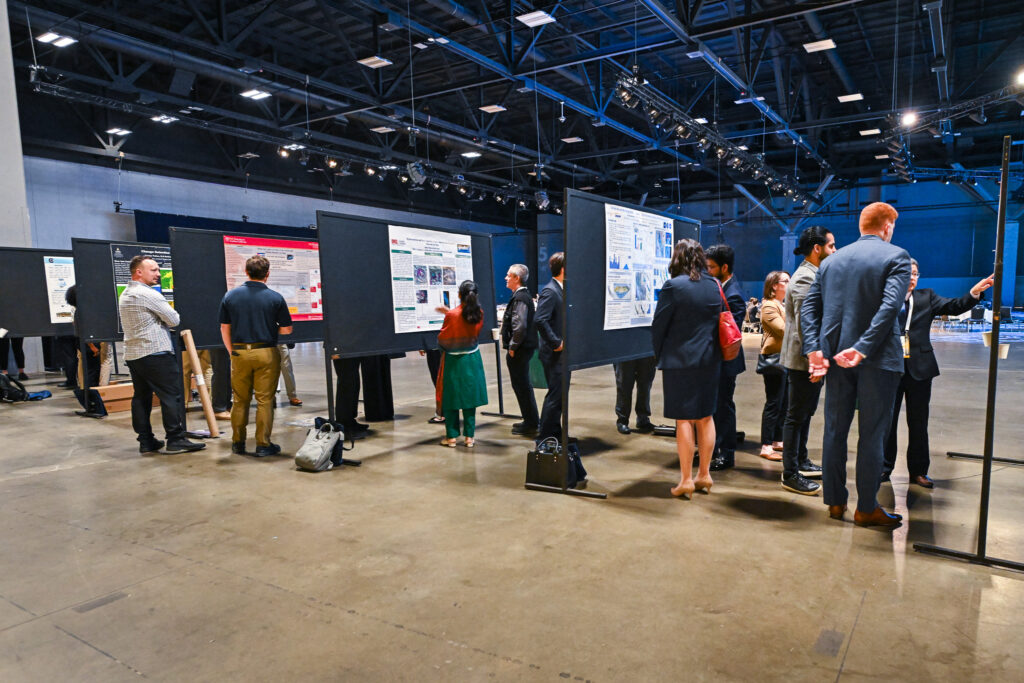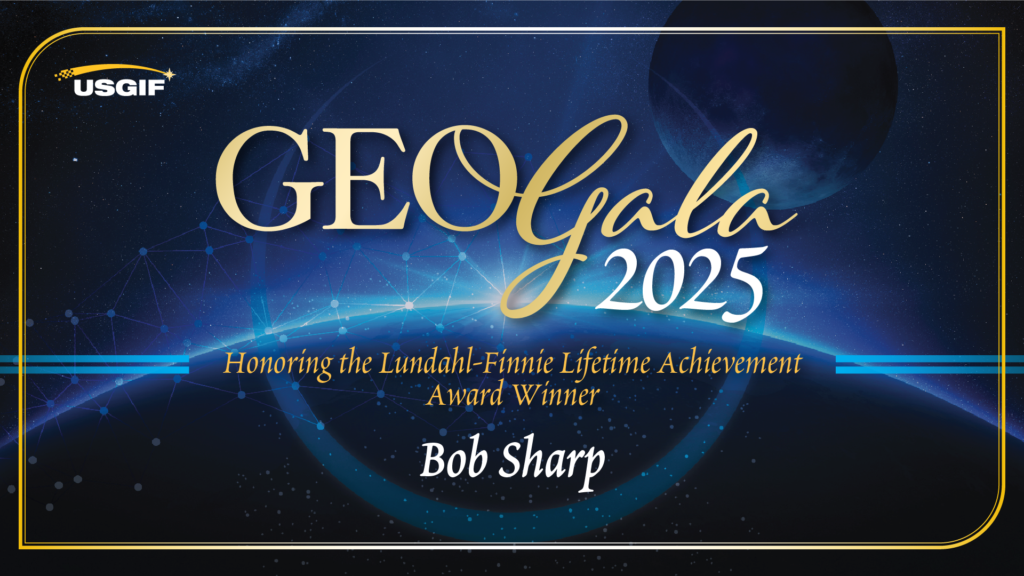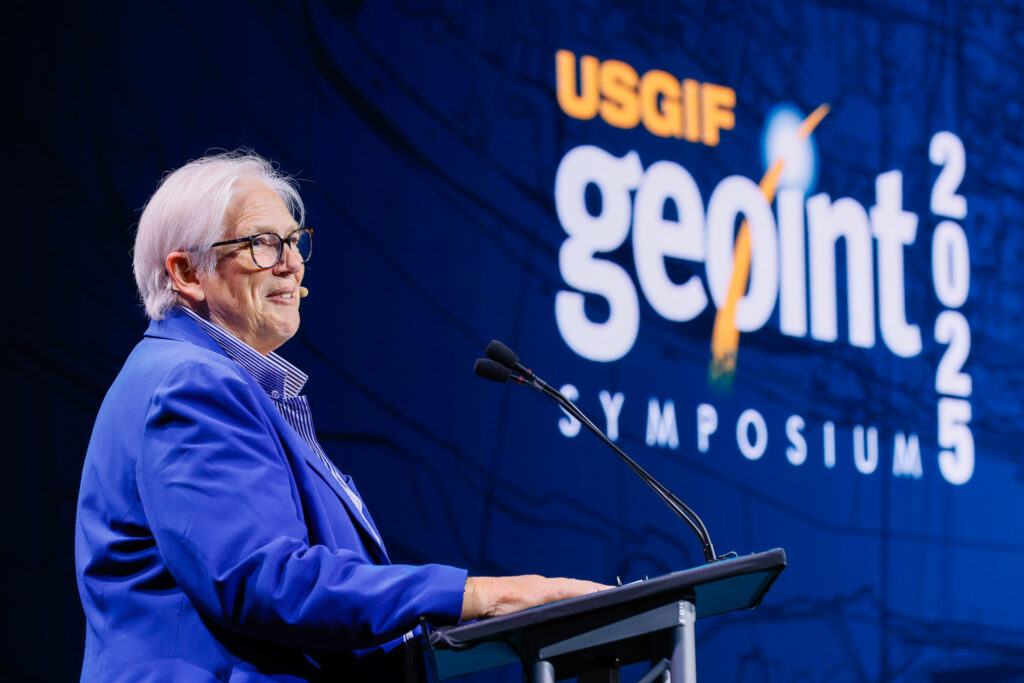Is Quantum Computing Poised to Transform GEOINT?
As quantum computing matures, so does its potential to impact geospatial intelligence

Quantum computing (QC) is poised to turn a corner from science fiction to practical function—one that could have profound applications for GEOINT. The potential for quantum computing to be a “domain disrupter” makes it a topic of critical interest at the upcoming GEOINT 2024 Symposium. Here’s more on why GEOINTers need to pay attention to quantum computing.
Traditional computing is built upon binary code, ones and zeroes, based on the idea of a two-way switch that’s either on or off. QC, on the other hand, harnesses the power of subatomic phenomena—specifically, the unique properties of quantum bits, or qbits, that enable them to simultaneously exist in multiple states.
Instead of occupying a hard “on” or “off” state, qbits can inhabit something in between called a superposition. When qbits inhabit that superposition, they can drive a probabilistic form of computing that’s theoretically much more powerful and efficient than a conventional computer at solving certain types of problems
That’s where the potential benefits for GEOINT come in. Immense amounts of data processing are required to produce geospatial insights, and the computing load is poised to grow substantially as as persistence increases and more complex phenomenologies mature. QC has the potential, at least in theory, not only to provide the necessary capacity but to do so at speeds that provide a competitive advantage compared to conventional systems. Quantum positioning systems also have the potential to provide more accurate location data than conventional GPS and already are being field-tested.
QC also could affect the security of geospatial data transmissions because of its code-breaking potential. Cryptography has been at the center of early quantum-computing milestones such as China’s Micius satellite, which in 2020 facilitated a quantum-secured teleconference between Beijing and Vienna. Regardless of whether quantum computing ever matures to its potential, it’s already having a practical effect on security and cryptography because governments must develop and implement security measures based on the assumption that their systems must eventually withstand quantum-enabled attacks.
Much quantum research has occurred in public view and via collaborations amongst worldwide teams of researchers, but if a single government were able to implement a breakthrough practical application before its peers it could constitute a meaningful advantage. The potential impact of such an advantage, along with the promise of GEOINT applications for quantum tech, suggests GEOINT could be an early beneficiary of quantum investment and attention.
The discussion around QC remains more about potential than reality. But as the technology matures, the considerations are becoming increasingly practical—especially for GEOINT professionals.
To learn more about how quantum computing is impacting GEOINT, attend GEOINT Foreword on Sunday, May 5 to hear government and industry experts discuss how quantum algorithms can revolutionize geospatial problem-solving, as well as quantum-safe cryptography and security implications for geospatial data and the challenges the GEOINT community may face for integrating QC into existing geospatial workflows
Related Articles
USGIF Celebrates 2025 GEOINT Symposium Student Poster Winners
USGIF proudly recognizes the outstanding achievements of the top three winners of the 2025 Student Poster Competition, selected from an exceptional field of uni…
USGIF Honors Vice Admiral Robert Sharp, USN (Ret.), with 2025 Lundahl-Finnie Lifetime Achievement Award
The United States Geospatial Intelligence Foundation (USGIF) is proud to announce Vice Admiral Robert “Bob” Sharp, USN (Ret.), as the recipient of the 2025 Arth…
GEOINT Symposium 2025 Day Three Recap
GEOINT’s Next Frontier: Space Collaboration and Strategic Alignment The final general session day of the 2025 GEOINT Symposium highlighted the challenges and o…




